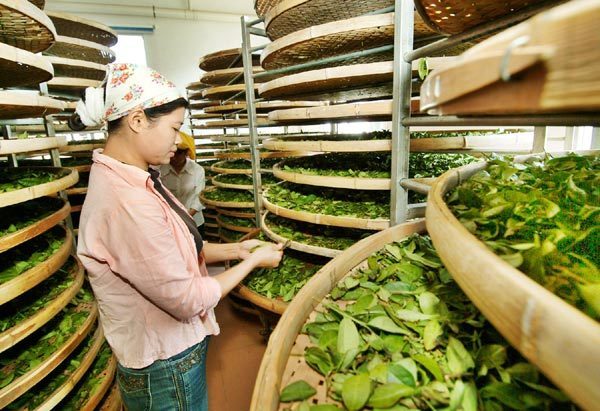Struggling tea village copes with lost glory from the front line
The first thing you notice when you enter Junying is the subtle fragrance of tea leaves that permeates the air.
Located in the steep, verdant mountains of Fujian province, the village has been producing tea for 300 years, and today its plantations cover 386 hectares.
Yet, get any one of its residents on the subject of tea, and you will likely be met with a deep frown.
"The word 'tea' used to lift my spirits," said Gao Shuzu, who farms three-fifths of a hectare. "Now it just makes me more worried, as we've had a lot of setbacks in the past two years.
"The tea I harvested this spring made me only about 10,000 yuan ($1,600). I was making six times that four years ago."
Gao is among 500 residents in Junying - 80 percent of its population - who make a living growing and selling tea leaves.
Another is Hong Mugen, who until early this year had stored about 10 metric tons of tea wrapped in plastic bags in a warehouse in the vain hope that prices would go back up.
"Some of it was harvested in the spring of 2010," the year prices began to drop dramatically, the 42-year-old said.
Hong said that eventually, he faced up to reality and decided to sell what he had in storage along with the leaves picked this spring from his 2-hectare plantation.
The lowest price he got was 10 yuan a kilogram, and in the end he made less than 30,000 yuan net profit.
"The situation has dampened the mood of villagers," he said. "Many stopped planting tea and became migrant workers in cities."























